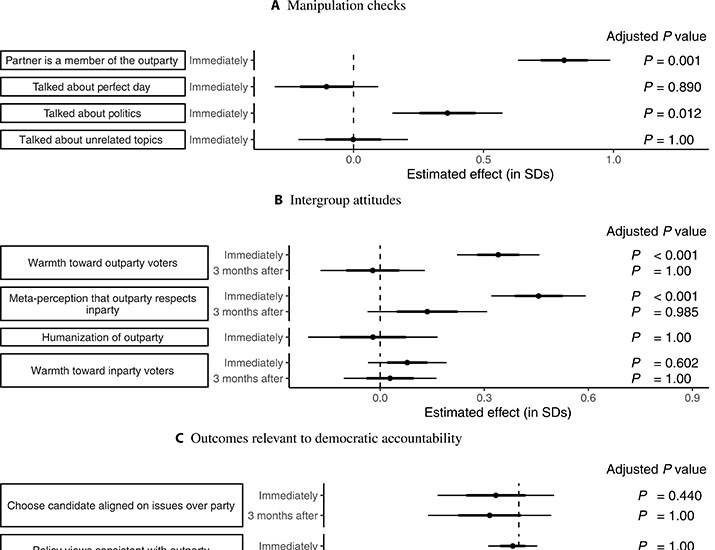- Record: found
- Abstract: found
- Article: found
The promise and pitfalls of cross-partisan conversations for reducing affective polarization: Evidence from randomized experiments

Read this article at
Abstract
Organizations, activists, and scholars hope that conversations between outpartisans (supporters of opposing political parties) can reduce affective polarization (dislike of outpartisans) and bolster democratic accountability (e.g., support for democratic norms). We argue that such conversations can reduce affective polarization but that these effects are likely to be conditional on topic, being especially likely if the conversations topics avoid discussion of areas of disagreement; usually not persist long-term; and be circumscribed, not affecting attitudes toward democratic accountability. We support this argument with two unique experiments where we paired outpartisan strangers to discuss randomly assigned topics over video calls. In study 1, we found that conversations between outpartisans about their perfect day dramatically decreased affective polarization, although these impacts decayed long-term. Study 2 also included conversations focusing on disagreement (e.g., why each supports their own party), which had no effects. Both studies found little change in attitudes related to democratic accountability.
Abstract
Abstract
Cross-partisan conversations can reduce affective polarization, but effects do not persist long-term or spill over.
Related collections
Most cited references62
- Record: found
- Abstract: found
- Article: not found
Development and validation of brief measures of positive and negative affect: The PANAS scales.
- Record: found
- Abstract: not found
- Article: not found
A very brief measure of the Big-Five personality domains
- Record: found
- Abstract: found
- Article: not found
